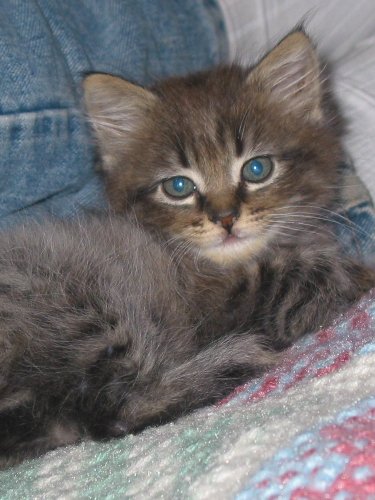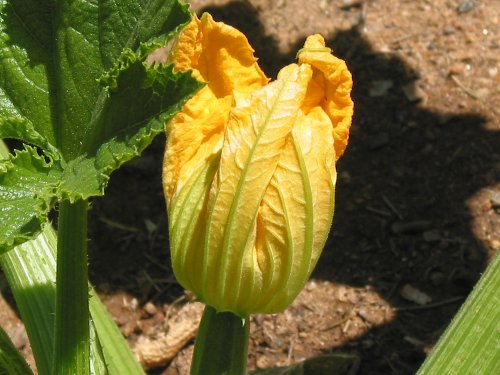You can read my article, “The Interdependent Language of Tarot,” in this month’s Newsletter issue #77 of the Association for Tarot Studies.
Recent writing
Premio Dardos Award
Eric Mayer at Byzantine Blog has honored me with the Premio Dardos Award. Eric is author, with his wife Mary Reed, of the John the Lord Chamberlain Mystery Series set in the Byzantine Empire of the 6th century.
Now don’t be too impressed with me, because I keep trying to type the award name as “Permio” today. I’m not sure whether I should get to keep an award I can’t spell. I’ll try to be more worthy and at least post a blog entry now and then. In any case I’m grateful to Eric for thinking of me.

Premio Dardos means “prize darts” in Italian and is awarded for recognition of cultural, ethical, literary and personal values in the form of creative and original writing. The rules are:
1. Accept the award by pasting the graphic on your blog along with the name of the person who granted the award and a link to his/her blog.
2. Pass the award to another 15 blogs that are worthy of acknowledgment, remembering to contact each so they know they have been selected.
I’m fudging on the rules a little. I’m paring down my list to award three writers, poets, or artists who blog. All of them are one or the other, and two of them are all three — creative writer, artist, and poet. Don’t ask me why I separate out poet as if it’s not also a kind of creative writer, but poetry is near to my heart. Here’s my list of award recipients:
1. Bev Jackson at Jackson’s Actions
2. Catherine Kerr at Beyond the Fields We know
3. Susan Gibb at Spinning
On not being in such a hurry
It doesn’t seem possible that we can already be one month and six days into 2009. I’ve been posting so infrequently that the blog barely has a pulse. But it is alive I assure you. It’s just been sleeping, dreaming if you will.
It’s raining and stormy today and I’m grateful for that. I think this is only our fourth big rain of the season so far. My cat Tara had a bath a few days ago on a warm, sunny, dry day that got to 80 degrees and seems to have become typical weather this winter. At least it’s been easy on the heating bill. Not so easy on the water bill or my sinuses.
I’ve been away from blogs except to post my ramblings about Tarot at Spirit Blooms. I’ve worked off-line at my other computer on artwork, read or posted on a couple of favorite Internet forums (more than I should), and searched out alternatives on- and off-line to spending money that I don’t have on books that I dearly want. I started out reading about Carl Gustav Jung; now I’m reading the writings of Jung himself, beginning with his autobiography written late in life, Memories, Dreams, Reflections![]() . Still deep in my J. R. R. Tolkien adventure, I recently finished reading The Annotated Hobbit, and now I’m savoring The Lord of the Rings. I’m a little shocked by how much watching the movies in the interim has botched my memory of the original story. Still they’re excellent movies. One should appreciate each on its own merits, the novel and the movies as separate creative entities. To do the written story complete justice there would’ve had to be nine or more movies instead of three. Not that I would complain, but not everyone is the Tolkien fiend that I am. Up ahead I plan to continue with The Silmarillion
. Still deep in my J. R. R. Tolkien adventure, I recently finished reading The Annotated Hobbit, and now I’m savoring The Lord of the Rings. I’m a little shocked by how much watching the movies in the interim has botched my memory of the original story. Still they’re excellent movies. One should appreciate each on its own merits, the novel and the movies as separate creative entities. To do the written story complete justice there would’ve had to be nine or more movies instead of three. Not that I would complain, but not everyone is the Tolkien fiend that I am. Up ahead I plan to continue with The Silmarillion![]() and The Children of Hurin. Perhaps others, who knows? I’m taking my time, reading mostly late in the evening before sleep, if I’m not too tired by then.
and The Children of Hurin. Perhaps others, who knows? I’m taking my time, reading mostly late in the evening before sleep, if I’m not too tired by then.
Eric Mayer mentioned, in his comment on my earlier post about rereading favorites, that he almost never rereads books. I’ve been the same way most of my adult life. I reread a lot when I was a teen and young adult, but at some point I realized there was plenty in print to read the first time around, and life was short. I felt that I’d miss out on too many other things if I spent my time rereading favorites.
I’ve changed my attitude about that again only recently. This has to do partly with some of the newer fiction that I’ve been dissatisfied with, partly with my budget, and partly with the tiny library here in town where the tastes of the librarians don’t seem to mesh with my own — or I’m just quirky in my reading tastes. I’m sure they have some Tolkien and maybe some Jung, but I’ve come to prefer to take my time and not feel constrained by a return date anyway. I tried writing reviews here for a while, and I found that if the book was a library book I had to return it too quickly, and if I tried to write a review after that, I kept wanting to refer to the book. If I like it, I want it to stay around for a while. I also tried our library’s on-line interconnection with an ebook download system, but that didn’t work for me. Old computer or aging human brain inside user? Either way it didn’t work and I didn’t want to waste time fussing with it. I wanted to read the book. You know, just open a cover and start reading. If something is going to slow me down I want it to be the savor of words.
That brings me to the fourth reason I’ve gotten back into rereading. Mostly it has to do with wanting to read slowly. I’ve given up on reading everything out there. I’ve finally accepted that’s impossible. I’ve decided to hone down my reading list and read what I love — slowly, and as many times as I want.
When I reread an old favorite I don’t have to be in such a hurry to get to the end. I already know how it ends. There is something to the first bloom of a new story, that first time through when it’s a path of discovery, recognition, and suspense. But this time I can pause and enjoy the language along the way, let the suspense build again slowly. My old favorites have language worth pausing for. The more commercial books today tend to be heavy on suspense and bizarre plots and twists, while they seem too often short on the kind of writing I savor. Many feel to me as if they’re written in too much of a hurry, or as if the writer didn’t even like the story he was writing. The secret to great writing, I think, is for the writer to so love the story that he’s reluctant to leave it. Chances are the reader won’t want to leave it either.
But then I’m not a hurrier, never have been. I think it’s too easy to get into an “I’ll miss something if I slow down” mindset in our day and age, though it’s a valid concern to some degree. In the work world, one must hurry enough to show up when needed, and if one slows down one is in danger of not getting important work done, of missing opportunities, or of not being able to do one’s job anymore because one hasn’t kept up with hyperactive technology. There are sometimes valid reasons to hurry. I don’t want the emergency room team to dawdle, or firefighters to take their time arriving at a fire. For readers who want to keep up, there’s such a huge amount being published, in spite of aspiring writers’ concerns that no one is publishing what they write, that it’s easy to think one has no time to reread or to read slowly the first time. There are also such a great number of people who want to be writers that it doesn’t appear we’ll ever have a shortage of reading material, even very good reading material leaving out the bad. It’s a crowded world full of people with something to say, many of them excellent writers.
Still I think we miss out on too much by trying to do or read everything. I’m not well-read, mainly because I’m a slow reader. Maybe that’s why I appreciate books that take a long time to produce. I can sense the love and time that was put into them. I can linger, relish, and wonder why. I can spend a relatively equal time enjoying them, and feel gratitude that the authors took the time to do it right.
Tolkien took something like 13 years to write The Lord of the Rings between 1937 and 1949. He took longer, when one considers all the thought prior to beginning it that he put into creating the world of Middle-Earth, from the time he was a boy, and the time between 1949 and 1954 that he worked with his publisher to get everything just right. That time shows. And it’s not as if by taking that long he missed out on sales, which seem these days so unforgiving of anyone lagging behind. The only time any of his books went out of print was during Word War II and the after-war years, when paper was rationed in England. Oh, and there was the problem of some proofs being destroyed in a bombing or a fire (I don’t remember which) that caused further delay in getting one edition of The Hobbit back into print. Of course one important factor in his print longevity was in being Tolkien. There have been many imitators and, as Eric seemed to hint in his comment, most imitations have not held up very well. Time is, I think, one reason.
I’m certain that the biggest problems with many books is that they’re devised and written in too much of a hurry, and because they aren’t true to the writer’s own creative promptings. I can see some publisher urging a writer to create something like Tolkien wrote, but to do it right now. Imitation done in a hurry can rarely hold up to the proper process of creation. Sometimes, but not usually. Imitation as a whole is an iffy and questionable practice. Readers may say they want another story like The Lord of the Rings, but they’re not saying they want an imitation. They want more Tolkien, and that’s simply the best possible compliment to the original creator, not to any would-be imitator. Perhaps we sometimes, as readers, make the mistake of confusing the two ideas ourselves and go looking for another Tolkien when we should be looking for something else that’s new and fresh, and over which someone labored long and lovingly.
It’s been said that most of a writer’s work doesn’t take place at the typewriter or keyboard, or even necessarily with paper in hand. It happens inside the mind of the writer. I personally think every writer’s workspace needs a comfy couch, or a bed, and a window with a view of a natural setting or garden, as well as an immense library. I also think it’s safe to say that most great fiction writers have lived what they write. By that I don’t mean they’ve experienced it in physical reality. I mean they have a fertile and active imagination, an ability to visualize the experiences they haven’t actually lived. A relentless imagination at that. We use our imaginations to read, but the writer uses his imagination far more, over and over again, actively reliving the scenes he writes in his mind, working them out until they feel right, until he’s ready to translate them into written language. They get to know their own unconscious realms and facets of their own characters, as well as the archetypes of the collective unconscious, even more than we do ordinarily when we dream at night.
Now I know that some writers create at the keyboard on the fly. I’ve done that too. But the stories I’ve written that I felt best about were usually those that I had in mind for a long time before I dared to put any words down. They were an integrated collection of many things that occurred to me, including some fantasies, day dreams, things I wondered about, and even whole scenes, characters, or settings that occupied my mind well before I realized they’d formed anything close to a story worth sharing or writing down. Some were ideas I couldn’t put away because they begged to be told.
Fast writing may be part of the problem. I once rewrote a novel (Snow Angels) in the course of a few weeks, retyped the whole thing from scratch, from my head. But that story had been in my mind for a long time, in various forms, and even on paper in a few forms, before I did that. I’ve never taken part in NaNoWriMo, but I think it is possible for it to produce something of value, provided there’s something already percolating in the writer’s mind before they begin, perhaps for years before they begin typing it out. I’ve done fast writing exercises, and I know they have their value. But I wonder if the trend in fast writing is the reason so many new books I read leave me flat these days.
There is fast writing that’s great, and there have been many great prolific writers. But if we make the mistake of thinking their greatness lay in their proliferation, we do them a disservice. The secret to great writing also doesn’t lie in taking forever to produce something. I’m sure there are plenty of slowly written pieces of rubbish passing for fiction. But prolific writers are the exceptions to the slow writing rule, I think, and like Mozart’s music, great fast writing is great for other reasons than its speed of production or lack of revision. Of course everyone should write at their own speed, but fast writing of a single draft usually requires slow thinking up front, and long, slow revisions afterward. If one doesn’t take the time to do it right, to follow through, to consider it worth some effort, then even that smaller portion of fast writing time is wasted, not to mention the time anyone else takes to read the result. If it’s not worth spending lots of time writing, then maybe it’s not worth reading either.
In spite of how long Tolkien’s work has remained in print, it’s still possible that work of this kind is best done for oneself, with any idea or intent of publishing as a mere afterthought. One should, after all, consider oneself worth writing well and respectfully for. From what I understand of Tolkien, he only shared what he created with a few colleagues, friends, and his children, until the friend of a friend mentioned the possibility of publishing The Hobbit. Maybe that’s why it’s so good. He took time to shape and polish it to be what he wanted for himself and those he loved. Only after that did he shape and polish it for publication. Surely that provided him a great deal of satisfaction in what he wrote, regardless of whether strangers in his own land or across the pond liked it later on. He was also a real-life expert regarding myths of a world similar to the one he created and regarding the language he used to create it. But was he an expert who happened to come up with a story he was best suited to write, or was he a writer in the making, even as a child, who lived in his head creating a world first and who worked all his life to become expert at just what he needed to recreate that world on paper? Either way, he took his loving time about it, and that’s a good thing for all of us. After all, what’s the rush?
What’s the appropriate response to this?
I received a link to this news article in an email:
Melbourne writer jailed for insulting Thai royals
“FOR writing three ill-conceived sentences in a novel that sold fewer than 10 copies, Melbourne man Harry Nicolaides was yesterday sentenced to three years in a Thai prison.” (click to read entire news story)
Consider what would result in the world if everyone reacted to a perceived insult in this manner.
Imagine the silencing effect.
Even more disturbing, in another article on this topic — Thailand sentences writer for insults — it seems clear that this is probably a case of a writer getting caught in the middle of political maneuvering that has nothing much to do with insulting the royal family or with three sentences in the writer’s self-published work of fiction that only sold 10 copies. It has much more to do with someone else’s power play, or their fears about what will happen when the current Thai monarch dies.
Still it’s enough to make every writer in the world think hard about what freedom is and how much freedom of expression he or she really has. And on the Internet, we’re all writers.
Gardening habit or gardening revolution?
Mystery author Eric Mayer* mentioned in a recent blog post that his blog journaling hasn’t been very habitual of late. He went on to write about habits, and that got me to thinking about my habits, and how they’ve changed in the past year or so. Obviously, for me, blogging has taken a back seat to other things. So has my fiction writing, other than attempting to sell my latest finished manuscript, a mystery about a tarot reader whose awakening ability as a medium gets her involved in a murder investigation. (Interested agents or publishers are welcome to inquire here.)
Habits can be good or bad, and I’m sure everyone has some bad ones they’d like to unload. But one new habit I’m happy to have taken on this year is gardening.

Gardening is indeed a habit, one that gets into your blood in a way I didn’t anticipate when I started out this year. I’d done a tiny bit of gardening as a kid, when I remember planting one rose bush of my own but mostly helping my grandmother with her strawberries and vegetables on the embankment behind my parents’ house. Later, in my first apartment, I nurtured a few houseplants, and throughout my work life I’ve usually kept a potted plant on my desk. I kept African Violets in a north facing window in the last house we rented, until a cat took over that window sill. Still, my husband did most of the outdoor gardening, with a little weeding here and there on my part, until March of this year.
It started this spring with tending a few vegetable and flower seeds until they sprouted, and then the seedlings until they went into the ground. From there I progressed to caring for plants in the ground and preparing the soil for more of them. It’s rapidly expanding to a succession of all of these things, in the hopes of keeping some fresh produce in our salad and veggie bowls through this summer, as well as brightening a corner of the front yard, where my ultimate goal is to keep flowers blooming in a little cottage style bed year round. I’m a ways from that goal yet.
I’m still new at this, and I got a late start this year, but I get help and advice from various sources, and gardening is now a firm habit that I won’t easily give up. It’s one of the first things I think about in the morning and one of the last I think about before the sun goes down.
The plants seem happy about my gardening habit, when they can figure out what season it is. Our weather this spring switched back and forth for a couple of months from one extreme to the other, first dry Santa Anas with temperatures in the 90s, and then thick cloud cover and a shifting Jet Stream chilled the air to the 50s. This went back and forth for weeks, with little pleasant weather in between, and it kept our plants confused. In the past two weeks the weather has leveled off, and the plants are loving it.
They say beauty is in the eyes of the beholder, and I’ve recently realized there’s little more beautiful to me than a tiny plant bursting out of its seed container. Call me crazy, but I think baby plants can be almost as cute as a kitten, and they, like the kitten, draw out my mothering tendencies.

(I’ll bet you expected a photo of a seedling, but I couldn’t help the obligatory kitten shot.)
To some this pleasure might seem like taking joy in watching paint dry, but to me it’s more like watching a sunset at the end of a heat wave.

We celebrated our first avocado blooms a few months ago.

Now some fruit has set, which we hope will grow to maturity.

Avocados, according to my resident expert Ken who’s read something like 200 online agricultural reports about them, tend to drop a good portion of their fruit early, which can be disappointing to home gardeners. It will be disappointing to me, if it happens, because Reeds are my absolute favorite avocado variety.
Two days ago I celebrated my first squash blossom.

Zucchini may seem an ordinary thing to seasoned gardeners. It’s one of the easiest things to grow and the butt of gardening jokes, usually in reference to an overabundance of it. But I like zucchini, I love my resplendent squash plants with their huge green leaves, and those yellow-orange blossoms are gold to me.

I’m learning more about the various weeds that grow in the garden, some of which are edible. For instance, purslane and dandelion make delicious salad greens. Note, if you decide to try eating weeds from your garden, be careful that you know what you’re eating. Ensure that the plants haven’t been subjected to herbicides or pesticides and that they aren’t in fact toxic weeds.

Even some semi-edible weeds, like the sour grass we all discovered as kids, can be a problem if eaten in quantity, I’m told, and purslane looks very similar to a toxic type of spurge that often grows right alongside it. Have an expert show you how to identify edible weeds, and examine carefully whatever you pick to eat. This point was driven home to me when I found spurge, with its milky sap, growing in my own little purslane patch.
Yesterday Ken pointed me to a Los Angeles Times article about Guerrilla Gardeners, which linked to a slide show on how to make “seed bombs” as well as two blogs, here and here, about guerrilla gardening.
Gardening has not only revolutionized my daily routine. It’s apparently a revolution that’s spreading once again, as Victory Gardens did in the last century, with people today gardening to save money on local food and working on a clandestine volunteer basis to re-green the land.
_ _ _
* In case you aren’t aware, Eric Mayer and Mary Reed’s latest John the Eunuch Byzantine mystery, Seven For A Secret, was released in April by Poisoned Pen Press. If you haven’t kept up with their historical mystery series, it’s not too late to start. The earlier books in the series are still in print, and some are now available as Kindle editions.
Specialist or generalist
Have you ever had trouble deciding which topic to read about next, or what to major in in college? Has anyone ever told you that you have too many hobbies? Have you ever thought about leaving a perfectly good job to look for something else that might interest you more — even if it doesn’t pay more? Maybe you’re a generalist.
This past Saturday, Dave Pollard at How To Save the World linked to an essay in his Links of the Week that he described as brilliant and liberating, and I agree.
The essay, by William Tozier of the Notional Slurry blog, is titled, There are exactly two ways: one, and many. The two ways he discusses are specialization and generalization.
William Tozier proposes the notion that we’re all evolved to be generalists, that specialization isn’t normal. I tend to agree when I consider that many of our forbears were more general in their skills and knowledge than we are. Even today, skills tend to be more generalized in humans living closer to nature, and survival in a wilderness requires a lot of flexibility.
When I think about it, the only things our earliest ancestors planned was to survive, and they were never sure how they would have to do that. The only things they finished were a good meal when food was available, or a new tool or garment when an old one wore out — often taking time to add improvements or embellishments, so even they were never finished. They paused to take in their world and observe it. They learned from everything around them. They were creative, they were nomads, and they were students of life. They paid attention to what came their way, they took them as signs of what they needed to do, for now.
William Tozier discusses the problem of explaining to specialists what we generalists do, how to label ourselves in today’s world. It can be a problem, and I think this must be why, long ago, I started to think of myself as a writer. Aside from having an aptitude for English and composition, a writer has to read and learn about many things in order to do what she does. Writing provides an excuse to research anything and everything, as possibly relevant to a project. Later still I began referring to myself as a creative person, because that can involve lots of different interests too, even more than writing. It can encompass activities that are finished when they’re finished, or never finished, rather than finished to deadlines. Of course writers have deadlines, if they hope to make money at it, and there the generalist has to adapt to the specialized modern world.
I conformed to the specialized world for years, in being a reliable employee and meeting deadlines. I glued myself to my chair and focused on my job. I met deadlines, and earned awards and promotions for my conformity and work ethic. But I wasn’t happy. I didn’t even feel healthy doing that. Eventually it became habit, and I got so I felt uneasy if I didn’t have a plan. So then I was really stuck — uneasy with my schedule and commitments, and uneasy when I didn’t have any.
After a lifetime of thinking I wasn’t doing life right, that I needed to be more energetic, and get more done, finish more things, I feel relief and satisfaction to realize that I’m a generalist and always have been — and there’s nothing wrong with that. It explains so much. Some people may think of being a generalist as a bad thing and call us dilettantes, or unwilling to commit, and some may even think it’s a sign of a problem, one of those recently defined mental disorders for which there always conveniently seems to be a new drug. (When did we start inventing diseases to match the drugs instead of the other way around?) Heaven forbid any of us should be anything but cookie cutter normal, whatever that means. In our culture it apparently means we have to specialize in something, we have to plan everything out, have goals and deadlines, in order to succeed. We have to finish long lists of things, and fill every minute with structured activity.
Today we don’t just have a work ethic, we have a work ethic on steroids.
I for one am ready to stop the madness. If we were intended to plan everything out, then why do we need artificial planners like Daytimers, Palm Pilots, and Blackberries? If we’re supposed to have jam-packed calendars and meetings overlapping meetings, then why didn’t we evolve to keep our schedules in our heads, and to be in two places at once? If we were supposed to travel the same road everyday, then why do we love vacations so much?
Unfortunately, being generalists brings some of us less material success in life, since it’s much less likely that we decide on distinct, well-defined career paths, and even if we do, we get this itch to change careers now and then. We’re looked down on when we tend not to finish things to a schedule — and I agree that makes sense when others are depending on us to finish so they can do their things. We’re often better off working on our own, to our own schedules, which are pretty much nonexistent, and without anyone else depending on us conforming to a schedule. Sometimes we’re called Jacks of all Trades.
Provided you figure out eventually that this is how you’re supposed to be, that there’s nothing wrong with you for wanting less structure and commitment in your life, being a generalist can bring a great deal of freedom and happiness. After all, what makes you happier than being yourself, no matter how many directions that may lead you?
I’m a generalist, and have been all my life. I’m grateful to finally figure this out. Thanks, William and Dave.
It’s dark out there
We’ve had a few more days of rain, enough to soak the ground, and this storm came before the ground dried out from the last rain, which is good — and unfortunately unusual for us in our past few drought years. So I really shouldn’t complain about the weather, but . . . it’s awfully dark out there.
I balk at turning on lights in the middle of the day, but that’s what I’ve had to do the past two days in order to get any work done. I’m sorting through files, which is a bit scary, especially in the dark. I’ve also hibernated through these dark days to some extent because I’ve been under the weather. We both had the flu over the Solstice and Christmas, and though we’ve recovered, it tried to come back on me a few days ago, sending me once again in search of my vitamin bottles and throat lozenges, and whining about an earache.
It’s a good, wet winter, good for staying indoors and drinking hot beverages, celebrating the fact that we’re actually having winter, even if it is most people’s idea of spring or fall. The more wet winters we have, the less likely we are to have such horrible fire seasons.
Meanwhile, because I’ve decided to keep politics mostly off this blog, whenever I get the urge to wax political I post my views at my other blog, Spirit Blooms. I am putting my political blogging efforts into support of Dennis Kucinich for President.
Don’t worry, I haven’t given up this blog, and I don’t intend to. I’m still somewhat of a mystery to me, and I intend to keep writing, even if not mystery novels. I’m also still opinionated and have lots to say about writing, books, and lots of other stuff you might find interesting. Mystery of a Shrinking Violet will live on until the bitter end of my blogging adventure, whenever that is, sometime in the far future. I’ll be back in a day or two, hopefully with more to write about than the weather — or politics, which I honestly hate but can’t avoid in good conscience these days.
A Roar For Powerful Words!

Bev Jackson has awarded me the Shameless Lion Award. This award originated with Seamus Kearney of (more…)
Politics and the environment collide again
This is a political and diplomatic soup I never expected as a result of global warming, but I never was all that good at chess either.
Political dramas are playing out over the Northwest Passage, igniting fresh strife regarding who owns northern waters and the numerous islands that are revealed as ice melts.
If you’d like a look at what’s happening by way of the now-familiar backward chronology of a blog, check out BBC News’ Diary: Taking the Northwest Passage. It chronicles an actual passage by David Shukman on board ship with the Canadian Coast Guard. He includes information about the disputes that have risen in the past and may again in the near future. Shukman also answers questions from readers, with the help of Professor Jean-Eric Tremblay, the chief scientist of the expedition, in Northwest Passage: Your questions answered.
If you wonder how much global warming could change your nearest coastline in the next two decades, take a look at ABC’s What Global Warming Looks Like. It features the work of Edward Mazria, an architect who turned to spreading information about global warming and the contribution to it by the building industry. He’s produced a set of images showing what he predicts some large coastal cities in the US will look like in 2030, with projected rising water levels due to global warming.
Thanks to Georganna Hancock at A Writer’s Edge, for her post, Writing on Blog Action Day, and its heads-up that today is Blog Action Day for the Environment.
Yearning for fall
I’m in one of those quiet times when I think about things to write, and sometimes even write them, but I don’t post. So the blog is quiet. This is not an apology. I’ve decided that irregular blogging doesn’t require apology. It usually means we’re living more outside the blog or the Internet, and that is often for the best.
We’re getting our typical early fall weather, which isn’t really fall at all, but an evaporated extension of summer. A few cool, rainy days fooled us into thinking this autumn might turn out otherwise, but not so. Now we’re getting the really dry weather that saps the moisture out of every living thing, including me. My skin doesn’t like it, my hair doesn’t like it, and neither does the rest of me. Every contact with a metal object results in a little blue spark, making me cautious and twitchy. Maybe that caution extends to writing and is what keeps me from posting.
This is the time of year that I envy those who live where fall turns spectacular colors. Here we get drab yellowing, and maybe a little dull orange if the leaves don’t dry up and blow away in a Santa Ana wind before they have a chance to turn. I love fall colors, so I gravitate toward pictures of true autumn, and I’m grateful to all the bloggers in other places who share their photos of fall. Fall is my favorite season, and I crave as much as I can get.
Snow Angels
Administration
General Information
Navigation
Category Cloud
Word Cloud

Shadows Fall
Recent Comments
- anonymous: it was a good story
- Catherine: What a beautiful cat! I
- amy: i like it very much
- Janice Pence: I love this article.
- Reenie: Encore! Encore!
- anonymous: It is funny I happened
- Sarah: She has really become a
- Eric Mayer: Funny. Are her paws on
- Ken: Shades of Zez Confrey.
- Barbara: Anonymous --- I'm glad you
Recently Commented Articles
- Snow Angels: 221 Comments
- Move over piano man: 7 Comments
- Extrovert or introvert?: 32 Comments
- Which is smarter?: 7 Comments
- Office Cat: 7 Comments
- I know there’s something good happening out there: 8 Comments
Bookmarks
Blogs
- Beverly Jackson
- Beyond the Fields We Know
- Blog Trek
- Cassie-B
- Clear Lake Reflections
- Conscious Junkyard
- Down the Writers Path
- Eric Mayer
- Goddessing
- Grapez
- Greetings from Blogdog
- Herbal Connection
- how to save the world
- Jana’s Journal & Sketchblog
- Kingfisher Cove
- Paula’s House of Toast
- Reenie’s Reach
- Sarah
- Spinning
- violetismycolor
- Zen Knit
Resources for Readers
- Authors’ Blogs
- Best Author Blogs
- Blogging Authors
- Book Talk Radio
- Bookslut
- Campaign for the American Reader
- Cozy Library
- Cozy Mystery List
- First Book
- Goodreads.com
- Mary Reed & Eric Mayer
Resources for Writers
- A Writer’s Edge
- Agent Query
- Blog Your Book to the Top
- Mary Gordon: The Art of Teaching and Writing
- Preditors and Editors
Sites of Interest
- Astronomy Picture of the Day
- InkPot
- Post Secret
- Spirit Blooms - Tarot Readings
- The Art Shack Studio
- Your Yoga Voyage
WordPress Plugins
- Arne Brachhold
- Jerome Lavigne
- Peter Harkins
- Scott Buchanan
- Theron Parlin
- Alexking.org
- Bad Behavior
- Better Feed
- boren.nu
- Bread Crumb Trail Generator
- ChaitGear
- Contact Form
- Customizable Posts
- Edit Comments
- ElasticDog
- Elliot Back
- GaMerZ
- guff
- hitormiss
- Jixor.com
- Live Comment Preview
- Paged Comment Editing
- Paged Comments
- Photo Matt
- Recent Comments
- Related Posts
- Roblog
- Simple Thoughts
- Spam Karma 2
- Weblog Tools Collection
- WordPress Plugin Database
- WordPress Plugins



